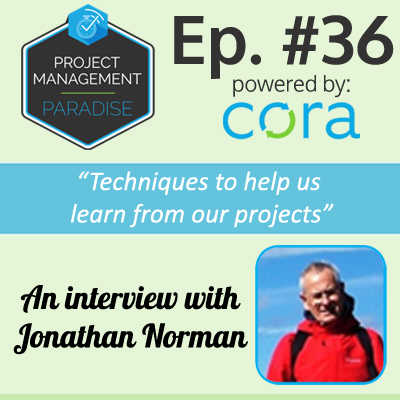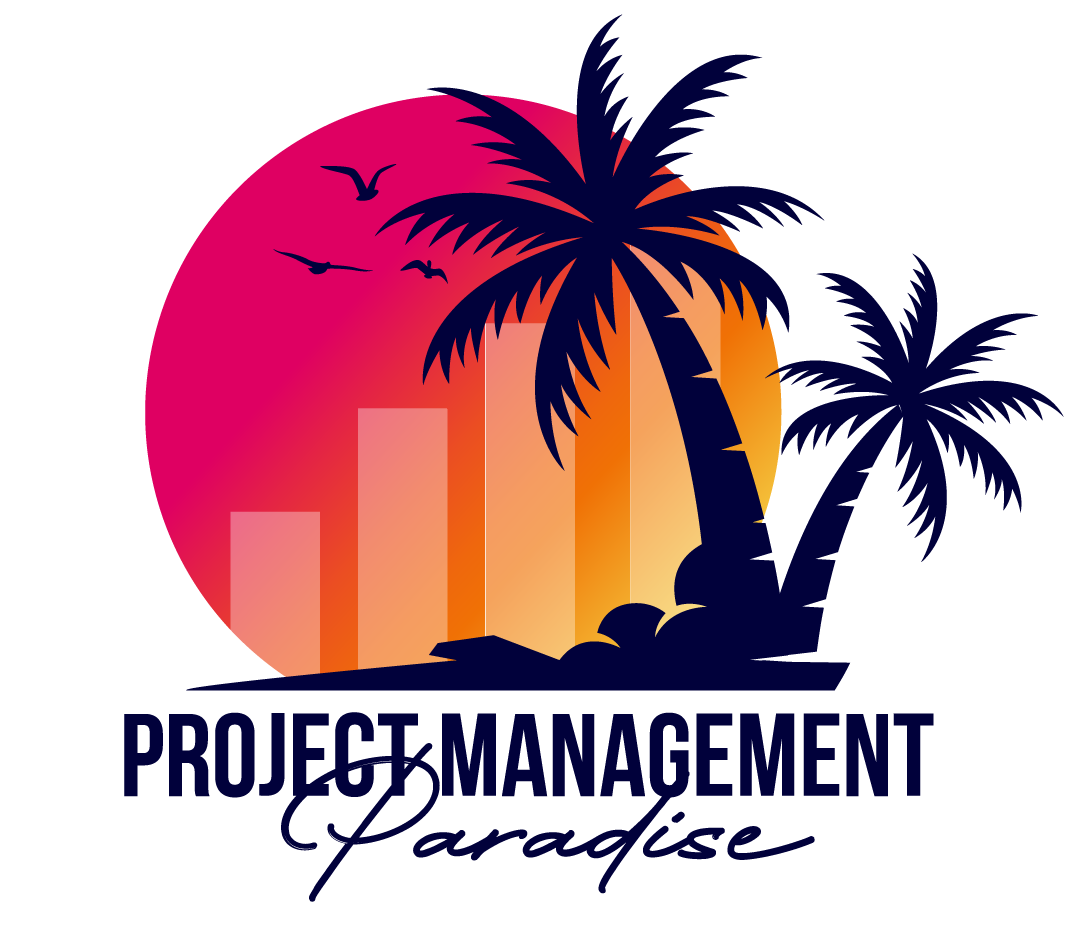In this edition of the Project Management Paradise Podcast Jonathan Norman, Knowledge Hub Manager at the Major Projects Association shares some techniques to improve lessons learned from projects.
Before moving to the Major Projects Association Jonathan worked in Business Book Publishing for 30 years and in this interview he shares some project management insights from his publishing career and also gives us some tips on how we can learn from our projects.
The podcast is sponsored by Cora Systems providers of enterprise project and portfolio management solutions and services to government agencies and large-scale global organizations. To see how Cora can help transform your organization why not request a free personalized Demo.
Subscribe to Project Management Paradise via one of the links above or on the right and you’ll automatically receive new episodes directly to your device.
Excerpts from “Techniques to improve lessons learned from projects”
Most publishers are no different from any other organization. They do some projects extremely well, and other projects they struggle with.
Every book that a publisher produces is a project. There are distinct stakeholders, authors, readers, and publishers. The content is original, the production of the book has a definite schedule and a budget. The benefit will only accrue once the book is published. For many authors, the benefits are intangible rather than tangible, so they’re about having a voice, increasing your reputation, your reach, and the status they have in the community.
Books are business as usual projects. The processes are simple and robust, while the risks are minimal. Consequently, large publishers have learned to manage these projects very efficiently and I think that’s where the issue lies. They’ve created a business as usual model out of their project which means that they can struggle when they come to more complex projects where the complication comes from the medium–digitally rather than print, or a new product type.
Many publishers don’t understand the change management associated with these kinds of projects. Book projects are fundamentally not about change, and many publishers are uncomfortable working in agile environments–like launching a new product, trial and error, or with a high degree of failure. They struggle with the challenges of introducing these new projects, products, and services, while at the same time running at 110% capacity with the standard book publishing, so it’s a challenge to business as usual vs. change the business.
What do publishers need to do?
Some publishers have re-branded themselves. Something that everybody within the organisation can start to understand and is not too technical – is to concentrate on communication and internal communication. They need to free up time. They have to cut costs, which means people. Those people find themselves doing everything from the valuable work to the most mundane, and that’s a real barrier to innovation to communication.
Why isn’t it easy to learn from past projects?
We need new learning models. This is no longer about teaching something to somebody who doesn’t know it. It’s not as straightforward. We’re working with projects and environments that are increasingly complicated and complex, so that requires a new model. The whole problem with learning is that you can find yourself a hostage to fortune when it comes to politics, so that can be a vested interest in not changing and individuals who won’t allow you to articulate failure–they only want things expressed regarding success.
Knowledge needs to be internalized, which means a lot of it will always reside in the head of the individuals involved. It’s not just a mechanical process, it’s a human and social process, so it’s complicated.
How have you seen it done for retirees? Is it a case of they start giving workshops internally, or they document some do’s and don’t?
They have taken that approach. The problems with that are you’re dependent on people knowing what kind of knowledge other people need. Also, you’re reliant on the individual’s concern and understanding what exactly their knowledge is. That requires a pretty high degree of self-awareness.
Where it’s been done better is finding ways of enabling the learners to challenge the person with the knowledge. Rather than saying to the knowledgeable person, we want you to put all of your knowledge into our systems and tell people everything you know. They encourage that the individual with the knowledge sits back and then responds to the prompts and interactions and involvement of the people who need to learn. It’s the learners who are structuring and drawing the knowledge out of the individual who has it.
Is that the best approach?
If you start at the bottom level, then you can create knowledge systems for lessons learned, stories, examples, and you can provide a way for people to find what they need whether it’s a database. If you add facilitators, they can monitor the content and surface relevant knowledge to the particular subject. You also need to create an opportunity for people to learn this kind of what if thinking skills and to encourage them to do that. You can’t do that from historical knowledge; you probably need to set up one or two simple platforms for doing that.
Plan something before you can do it. Ask people to imagine and be creative on what could go wrong here and what could go right and to talk through the different responses to the scenarios. They start to understand the culture of the business, how to respond, and what’s an appropriate response.
How does that (lessons learned from projects) compare with risk analysis?
It is a form of risk analysis because you’re trying to get to grips with some of the uncertainties that may be beyond the simple risks you’ve already documented, so it is very much part of your risk analysis. The problem with risk analysis in projects is if you just see it as a distinctive, simple element within the project then your decision-making process and the way you manage this process should be a much more dynamic approach regarding risk management.
We need to create some platforms and ways for which individuals can network and communicate socially to learn these social skills of sharing information of challenging of articulating their ideas, which is something you can do with your project learning–move towards a community approach.
Future Trends
In regards to information management and knowledge sharing, we will see internet tools and machine learning and other non-human ways of sifting through the vast array of knowledge there is and digging out the bits that are relevant and exciting. There will be more technology based and human-based solutions such as an increasing awareness of the need to communicate and the growth and value of social communities.
Show Notes
Find out more about the Major Projects Association here.





